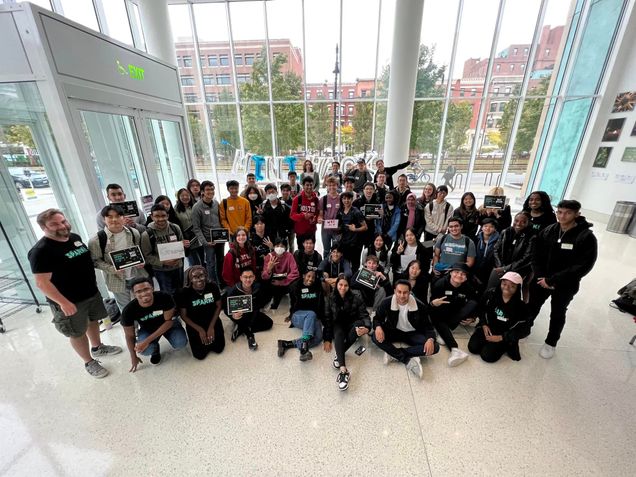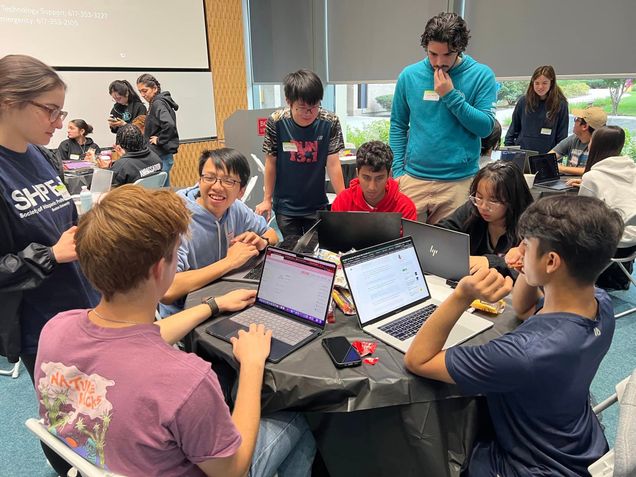Spark!’s Annual Mini Hack Helps Sustainability Initiatives Thrive
For most of us, a standard 9 to 5 day usually means slowly chipping away at project. For the Welcome Back Mini Hack participants, they only had eight hours to create an entire game or app at Spark!’s annual hackathon. This year, the festivities were amplified with a newly added partner to the mix, SHPE-BostonU.
“Today we fostered innovation,” Mini Hack mentor, Phil Ledoit (CAS’23) said. “Especially with the freshmen and underclassmen in general — giving them a taste of what a hackathon is really like with the condensed time pressure.”

Participants, namely first and second year students, gathered in teams to create a working project by the days end during the first Saturday of October. While hackathons are often clouded with the stress and intimidation at the prospect of creating something out of nothing, students didn’t have to face the competition unaided. Mentors supported their efforts while also providing participants with a theme to follow: sustainability.
“It was really cool to be able to confine our views of the prompt, what we each thought about it, and put it together into one big project combining our abilities,” Jessica Cannon (CDS’26) said.
Creating a project of this magnitude didn’t require the wealth of computer science knowledge that you might think. Everyone, regardless of their proficiency with programming, was invited to attend. “I don’t have as much experience coding as a lot of people that I saw here,” Cannon added. “But it was really accommodating to everyone’s skill levels.”

For those ready to conquer their next hackathon, Josh Mayer (CAS’26) has words of wisdom as a winner who finished his project in the last 30 seconds. “My advice after my first one is to have as much fun as possible, because it’s a lot to think about trying to finish a project like that,” he said.
The evening concluded with a prizes for best code, best design, and a special designation for the team who still made it to the finish line despite the mounting obstacles, “Best Try.”
Above all, students walked away with an important life lesson after venturing into new territories. “The whole point of computer science and the whole industry of innovation is to move outside of your comfort zone. If you already know everything you need to, then you’re doing it wrong,” Ledoit said.
Winners
Best Code: Greenengle
Minseok Lee, Adi Bhan, Kit Yan, Sai Nayunipati, Josh Mayer
Best Design: Renta
David Nguyen, Ian Ding, Kate An, Olesya Kukhareva, Jiawen Liu
Best Try: Fuel Efficiency Routing
David Gardner, Ian Tsai, Evan Powell, Cixin Gao, Lize Chen